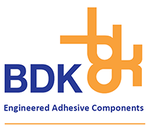Tests are currently being developed to detect previous COVID-19 infections.
It is anticipated that antibody tests will be able to obtain important data on the virus to understand the extent of the outbreak and to guide vital treatment.
How COVID-19 Antibody Virus Tests Work
B cells in the immune system produce unique antibody molecules; each antibody precisely recognises one specific antigen. After a virus or infection, pathogen-specific antibodies are produced to protect against repeat infection.
If you were previously infected with COVID-19, antibody testing would show the presence of specific antibodies that were produced and, now, protect you from the virus.
Methods of COVID-19 Virus Antibody Testing
There are two different methods of performing antibody tests.
Single Step Method
The single step method is a rapid-testing methodology. A reagent well in a diagnostic test strip is coated with anti-human monoclonal IgM and IgG antibodies. A patient’s blood sample is added to this alongside a specimen diluent.
The strip is inserted into a top reader and the result of the reaction between the blood, reagent and test area is returned in minutes; it is optically read as a yes or no for the presence of antibodies. This assay is appropriate for a point-of-care testing platform which BDK’s precise manufacturing capabilities produce; our capability to create microfluidic channels from accurately cut and laminated layers of materials is vital for single step antibody tests.
Multi-Step Method
The multi-step method is a lab technique known as the ELISA method, an Enzyme-Linked Immunosorbent Assay method. It is a plate-based assay technique designed for detecting and quantifying soluble substances, such as peptides, proteins, antibodies, and hormones. BDK have profound knowledge and expertise concerning consumables for microwell plate analysis used in the ELISA method.
In this case, a patient’s diluted blood sample and an aliquot are placed in a multi-well plate. After being incubated and washed, anti-human IgG and IgM antibodies are added to the plate and incubated. A chromogenic substrate is then added and incubated and read on a micro plate reader.
BDK’s Involvement in COVID-19 Testing
BDK, established over 60 years ago and one of the largest specialist adhesive tape convertors in Europe, are proud to be able to support the continuing battle to contain the disease. From the outset we protected our people and business to ensure continuity of supply to our customers.
Contact us today to find out more about us and what we can do.
